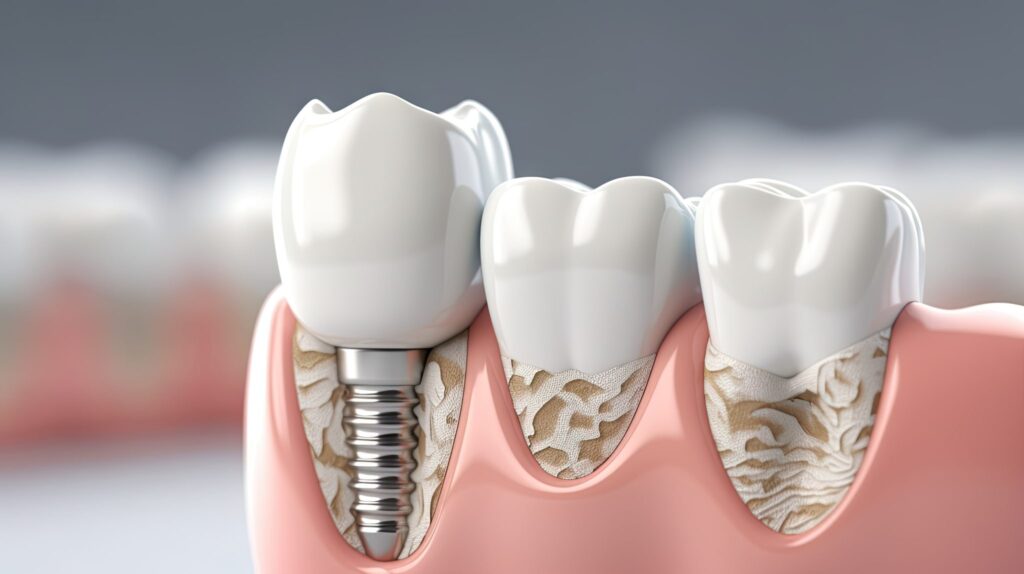
Dental implants have become a popular solution for individuals looking to replace missing teeth. With their ability to mimic the look and function of natural teeth, many people are curious about their success rates. This blog delves into the success rates of dental implants, factors influencing these rates, and what patients can expect from the procedure.
Overview of Dental Implants
Dental implants are artificial tooth roots that provide a permanent base for fixed or removable replacement teeth. They are typically made of titanium, which is biocompatible and integrates well with bone tissue. The procedure involves placing the implant into the jawbone, allowing it to fuse with the bone in a process known as osseointegration. This integration is crucial for the longevity and stability of the implant.
Success Rates of Dental Implants
The success rate of dental implants is impressively high, generally reported to be over 95% for properly placed and maintained implants. According to various studies, the average failure rate worldwide is around 3.1%, with a slightly higher rate of 6% in the United States. This indicates that most patients experience successful outcomes with their dental implants.
Several factors can influence these success rates:
- Quality of Surgical Technique: The expertise of the dental professional performing the implant surgery plays a significant role in its success. A skilled implantologist can minimize risks and complications, leading to better outcomes.
- Patient’s Health: Overall health conditions, such as diabetes or osteoporosis, can affect healing and integration. Patients with these conditions may require additional evaluations or treatments before proceeding with implants.
- Oral Hygiene Practices: Maintaining good oral hygiene is essential for the longevity of dental implants. Patients are encouraged to follow their dentist’s aftercare guidelines closely to prevent infections and other complications.
Factors Affecting Success Rates
While dental implants are largely successful, several factors can impact their effectiveness:
- Bone Density: Adequate bone density is necessary for successful osseointegration. Patients with low bone density may require bone grafting procedures before receiving implants.
- Smoking: Smoking has been shown to increase the risk of implant failure due to its negative effects on healing and blood flow.
- Pre-existing Conditions: Conditions such as periodontal disease or autoimmune disorders can complicate the healing process and increase failure rates.
What to Expect During the Procedure

- Initial Consultation: During this visit, your dentist will assess your oral health and determine if you are a suitable candidate for dental implants.
- Implant Placement: The first surgical phase involves placing the titanium implant into the jawbone. This procedure is usually performed under local anesthesia.
- Osseointegration Period: After placement, there is a healing period ranging from three to six months during which the implant fuses with the bone.
- Abutment Placement: Once osseointegration is complete, an abutment (connector) is placed on top of the implant.
- Crown Placement: Finally, a custom-made crown is attached to the abutment, completing the restoration.
Long-term Care for Dental Implants
After receiving dental implants, patients should adhere to a strict oral hygiene routine to ensure their longevity:
- Brush twice daily and floss regularly.
- Attend regular dental check-ups for professional cleanings and assessments.
- Avoid smoking and limit alcohol consumption to promote healing.
In cases where immediate care is needed, finding a Rockville Dental Implants provider can ensure any complications are addressed promptly.
Conclusion
In conclusion, dental implants offer a highly successful solution for tooth replacement with success rates exceeding 95%. Factors such as surgical technique, patient health, and adherence to aftercare significantly influence these outcomes. By understanding what to expect during the procedure and how to care for implants afterward, patients can enjoy long-lasting results that enhance their quality of life. If you are considering dental implants or have further questions about their success rates, consult with a qualified dental professional who can guide you through the process
